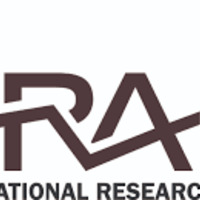A Portrait of the Chicago Native Community and Their Attitudes and Awareness Around Heritage Language Learning
Item
- Title
- A Portrait of the Chicago Native Community and Their Attitudes and Awareness Around Heritage Language Learning
- Abstract/Description
-
Language Loss is an important issue affecting Native American communities across rural, urban and reservation lands. Studies show that revitalization programs that have significant community involvement have a higher rate of success (Berlin, 2000; Linn, 2004). This paper presents research from an initial study designed to gain a sense of Chicago Native Americans attitudes around and usage of their heritage languages. With the belief that community involvement is a key component to revitalization efforts, we created a language survey as a tool to begin collecting input from the larger community that will influence future plans for revitalization efforts and language programming in the Chicago community.
There has been a long history of federal policies that have both explicitly and/or implicitly promoted the eradication of native languages, culture and identity. Native American languages are uniquely situated in the landscape of U.S. language discussions and policies and often ubiquitously absent in their position and relation to the English language. Unlike other languages spoken in the United States, Native languages do not have an incoming flow of native speakers immigrating from their home country; as McCarty (2003) explains, “indigenous people have nowhere to turn but their own communities to replenish the pool of heritage language speakers” (p. 148).
This research is guided by questions about language attitudes, language awareness and use, and heritage language learning preferences. Quantitative and qualitative data was collected at community functions. For this study, we surveyed 75 people and conducted 10 clinical interviews. The survey instrument is made up of Likert scale questions. The clinical interview asked questions grouped around the following themes: Language Practices, Language Attitudes and Awareness of Language Loss.
We used a mixed methods approach to examine the looked for overall trends; in addition, we disaggregated the data into smaller demographic groups. Closer analysis grouped respondents by speakers, learners, age cohort and families with at least one heritage speaker. In addition, we closely examine respondents and families migrations to Chicago. An important dimension of language revitalization in urban communities like Chicago will be in understanding the impacts of federal relocation policies on heritage language health and language attitudes. Language revitalization is more complex than language use or non-use. Language is used as a meaning making tool that holds a culture’s values and belief systems (McCarty et al., 2006; McCarty, 2003; Berlin, 2000), helps to build identity (McCarty, 2003; McCarty 2008; Berlin, 2000) and can have an effect on the socialization process (Feuer, 2009, McCarty et al., 2006).
Preliminary results suggest that the Chicago Native American community views language as part of identity, culture as embedded in languages, and that without heritage languages, traditional practices such as storytelling or ceremonies, would change. Further, I more closely examine the language attitudes to heritage language speakers who were relocated to Chicago during the federal relocation era and their extended families. - Author/creator
- Alfonso, Jasmine
- Date
- Place presented
- New Orleans
- Resource type
- en Research/Scholarly Media
- Resource status/form
- en Panel/Poster Session
- Scholarship genre
- en Empirical
- IRE Approach/Concept
- Community-Based Design Research (CBDR)
- Featured case/project
- Cultural Context of Learning: Native American Science Education (CCL)
- Open access/full-text available
- en No
- URL
- Paper Summary & Session Description (via Online AERA Annual Meeting Program)
- 2011 AERA Annual Meeting Webpage
- Citation
- Alfonso, J. (2011). A Portrait of the Chicago Native Community and Their Attitudes and Awareness Around Heritage Language Learning. AERA Annual Meeting 2011, New Orleans.
Annotations
There are no annotations for this resource.

